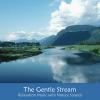This is going to be a pretty general request, and I may sound a like a student asking it, but here goes.
I'm looking for recommendations for resources (books, websites, papers, etc.) that really focus on the design of control loops in a system. The actual control schemes that you can put right on your P&ID for illustrating the methods for controlling a chemical process system.
I own several books on control and took the a controls class in college, but everything seems to be designed more for EEs than Chem Es and MEs. The books usually jump right into details like dynamic response curves and performing Laplace transforms and PID tuning and all of that. Now, I don't deny that this is important for the actual tuning of the control system, but there's rarely any discussion of what you're measuring, what you're controlling, how you're controlling it, and why you're controlling it a certain way. And yet, as a chemical engineer, these are the things you must know to properly draw the P&ID for your process.
So I'm looking for something that's more geared towards chemical and mechanical engineers that have to come up with the control philosophy of the system. There are innumerable situations and questions that need answers, and I'm not expecting them here. Some examples off the top of my head might be:
Do all two phase vessels require level control and in what cases does it need to be continuous adjustment and in what cases does can it just be handled by emptying and filling the vessel based on high and low level switches?
How do you control the composition of the products of your distillation tower? You could add more or less heat to the reboiler or change the condenser conditions or modify the split on the reflux control valve or any combination of these or even some other scheme.
Where is it preferable to use a three way control valve instead of two separate control valves?
Where should pressure and temperature be monitored on various compressor setups, and how should these measurements affect the control (via internal or external bypass or possibly via VFD) of said compressor?
Here's one from a current customer: where is the best location to put a temperature control valve for maintaining a specific temperature out of a cross exchanger? They have their thoughts, and mine are a little different.
Must a higher pressure line going into a lower pressure line always have a pressure control valve or regulator to drop the higher pressure to the lower pressure?
And then of course there's the whole topic of alarm points and safety/shutdown responses, which is a probably as big a topic as the normal operating control of a system. Startup control is yet another unique area that can't be ignored.
I could probably spend days coming up with reams of questions like this, and I know that most, if not all, of these are quite general or maybe some are even misguided. But that's exactly my point: it's hard to find solid answers to a lot of these and similar questions. I can read and write P&IDs and come up with control loops that I believe make sense. That's based on various amounts of experience I've picked up and reading I've done along the way in my short career. However, there are always questions in the back of my mind as to whether we've got an optimal arrangement or if we've got valves in a suboptimal place or if we've missed an alarm point or interlock. There are always other eyes (my boss, other engineers, the customers, HAZOP guys) looking at the P&ID, but I don't have total faith in any of them, so the questions remain in my head.
Given the long history of chemical processing equipment and plants, there's got to be something out there that directly discusses the control philosophies for various common scenarios and pieces of equipment. There's also got to also be plenty of practical advice for process control system design. Does some compendium of knowledge like this exist? Kind of like a Perry's, but a comprehensive collection of just control scenarios. Or perhaps there's a dozen different places I should look to fill out the picture. We all know what the common parts of any plant are: compressors, pumps, towers, separators, reactors, heat exchangers, the piping between all of these things, etc. All plants have their unique aspects, but most of these control scenarios should be fairly well-established, I have to think.
I'd appreciate any recommendations that you all can give me. Thank you.

 FB
FB
















